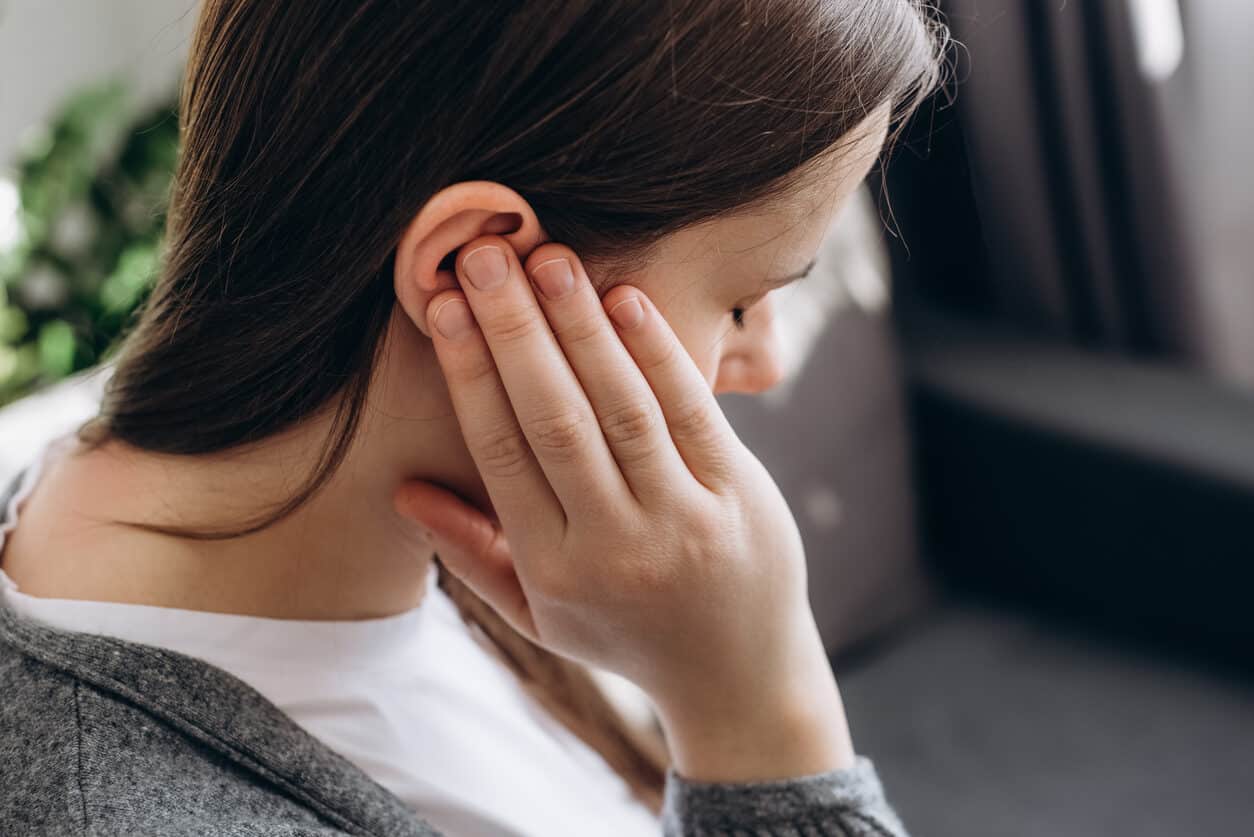Tinnitus is a condition characterized by hearing sounds that aren’t caused by external sources, such as ringing, buzzing or hissing. Approximately 10% of Americans have experienced tinnitus lasting five minutes or more in the past year. Understanding how tinnitus relates to hearing loss and the role hearing aids can play in managing its symptoms can be helpful for those who experience tinnitus symptoms.
Understanding Tinnitus and Its Connection to Hearing Loss

Tinnitus can occur on its own but is strongly linked to hearing loss. One reason is tinnitus is believed to be linked to changes or damage in the auditory system, which may include the inner ear or the auditory pathways in the brain. When the hearing system is compromised, such as through age-related hearing loss or exposure to loud noises like frequent concerts at Buck Owens’ Crystal Palace, it can lead to tinnitus.
Hearing loss can exacerbate tinnitus by making the internal sounds of tinnitus more noticeable. When external sounds are diminished, tinnitus may become more prominent, creating a feedback loop where the discomfort of tinnitus is amplified by the hearing loss.
The Impact of Hearing Aids on Tinnitus
Hearing aids are commonly recommended for individuals with hearing loss and can have a positive impact on tinnitus symptoms. These devices can provide relief from tinnitus symptoms in several ways:
- Improved auditory input: By amplifying external sounds, hearing aids can reduce the contrast between tinnitus and external noise. This can help make tinnitus less noticeable and reduce its impact. With better overall ability to hear sounds they otherwise would miss, individuals are also less likely to focus on the internal sounds of tinnitus, leading to an improvement in their perception of the condition.
- Sound therapy features: Many modern hearing aids include sound therapy options, which can help mask tinnitus sounds. These features generate soothing background noises or white noise that can help distract from tinnitus and provide relief.
Tinnitus has no cure, so hearing aids cannot be expected to cure tinnitus or restore lost hearing. However, hearing aids can be a valuable tool in managing symptoms and amplifying speech sounds. By improving overall hearing and providing sound therapy options, these devices can help reduce the prominence of tinnitus.
To learn more about managing your tinnitus symptoms and hearing loss, schedule a consultation with The House Institute today.